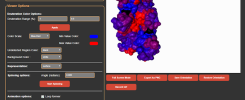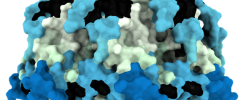Vandenbrouck Y, Christiany D, Combes F, Loux V, Brun V. Bioinformatics Tools and Workflow to Select Blood Biomarkers for Early Cancer Diagnosis: An Application to Pancreatic Cancer. Proteomics. 2019 Nov;19(21-22).
Nguyen L, Brun V, Combes F, Loux V, Vandenbrouck Y. Designing an In Silico Strategy to Select Tissue-Leakage Biomarkers Using the Galaxy Framework. Methods Mol Biol. 2019;1959:275-289.
Although biomarkers are widely used, important limitations have been identified due to their lack of specificity. An a priori knowledge-based approach (i.e. based on mechanistic criteria specific to the genesis of a disease) that takes advantage of ever-increasing « omics » databases could be a powerful way to identify biomarkers, provided that scientists have access to computer tools to search the data even when they have little experience in programming or bioinformatics support. Based on this observation, we developed ProteoRE, a web application that provides a set of tools accessible to biologists to define their own strategy for selecting biomarker candidates. These tools are based on the extraction of experimental data from public human databases (proteomics and transcriptomics) and the application of successive filters based on physiological and biochemical criteria (e.g. tissue specificity, subcellular location, detectability, etc.) in relation to the pathology. A step-by-step protocol (i.e. a workflow) allows these tools to be linked in a transparent and reproducible way. The bioinformatics tools, workflows, results and tutorials resulting from these strategies are made available to researchers (http://www.proteore.org/) so that they can be reused in their quest to discover biomarkers.
The ProteoRE project (Proteomics Research Environment) is a national project funded by the French Institute of Bioinformatics (IFB – ANR-11-INBS-0013), in collaboration with INRA (MIGALE platform) and carried out in cooperation with the proteomic infrastructure (ProFI). ProteoRE is a Galaxy-based web application open to the community and dedicated to the functional analysis and exploration of proteomic and transcriptomic data in biomedical research. This environment allows non-bioinformatics researchers to apply a wide range of tools and analysis workflows to their data, share their results with their collaborators, and reproduce the same analysis while keeping track of the overall process.
Contact: Yves Vandenbrouck


